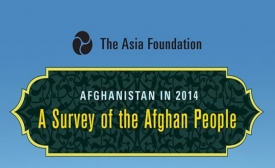peacebuilding

At the heart of Séverine Autesserre’s new book is a conundrum: If international peacebuilders are well-meaning people versed in the latest approaches to conflict resolution, why do their efforts so often come up short? Unsatisfied with the usual explanations (such as a lack of funding and resources from powerful states), Autesserre embarked on an ambitious project to interview hundreds of UN officials, NGO workers, and local staff in conflict zones around the world in order to study “the everyday” : their daily work routines, their standard security procedures, and even their social habits
“The use of sport in local or intra-national diplomacy has proven effective in the case of Tanzania between two formerly conflicting nations, Tanganyika and Zanzibar, with the conduct of sports paving the way towards cultural exchanges, which eventually led to the strengthening of ties between the two liberation movements,” the lawmakers said in their bill.
Instead of assuming the inevitability of conflict, it is possible to see water scarcity as an opportunity for cooperation, with states and communities realising the mutual benefit available to them through working together rather than competing.








